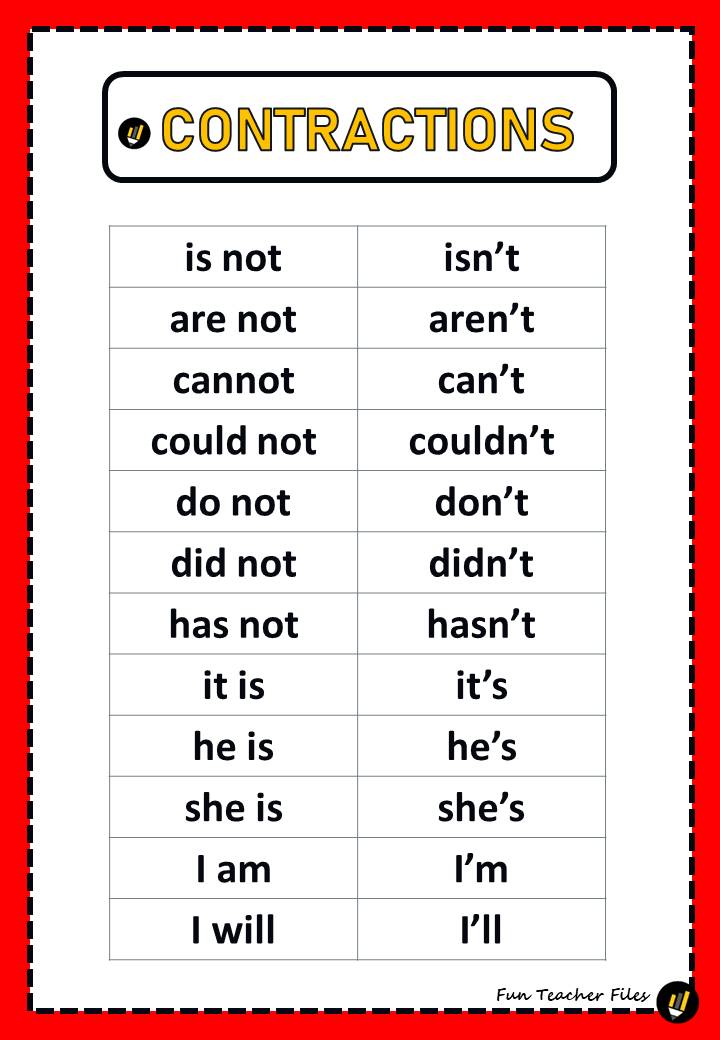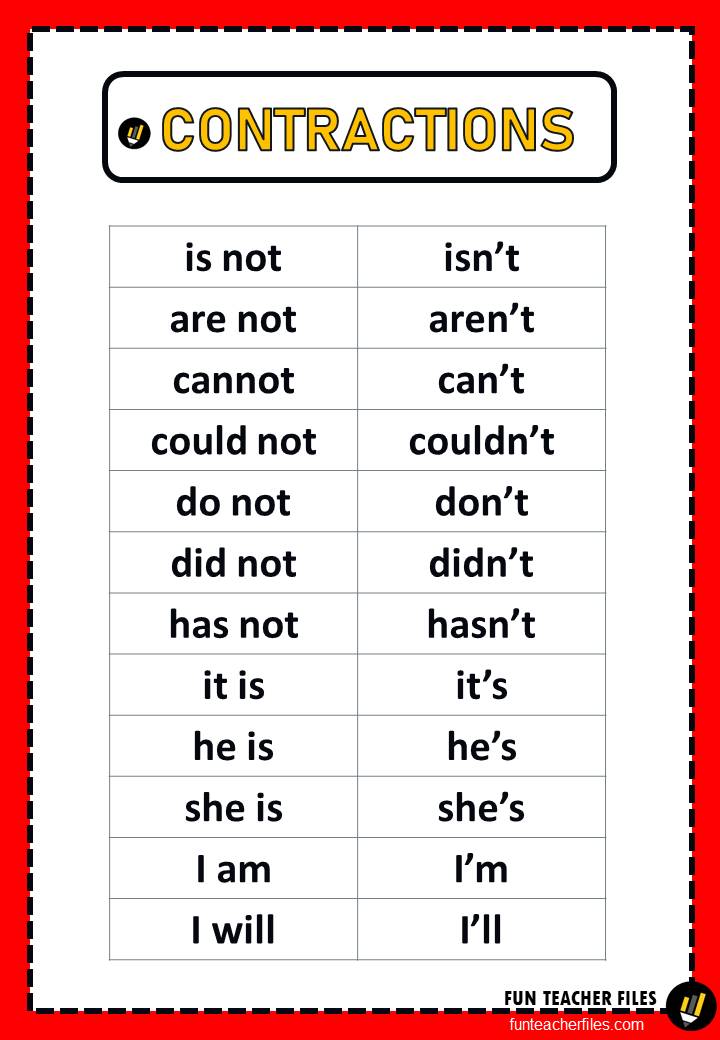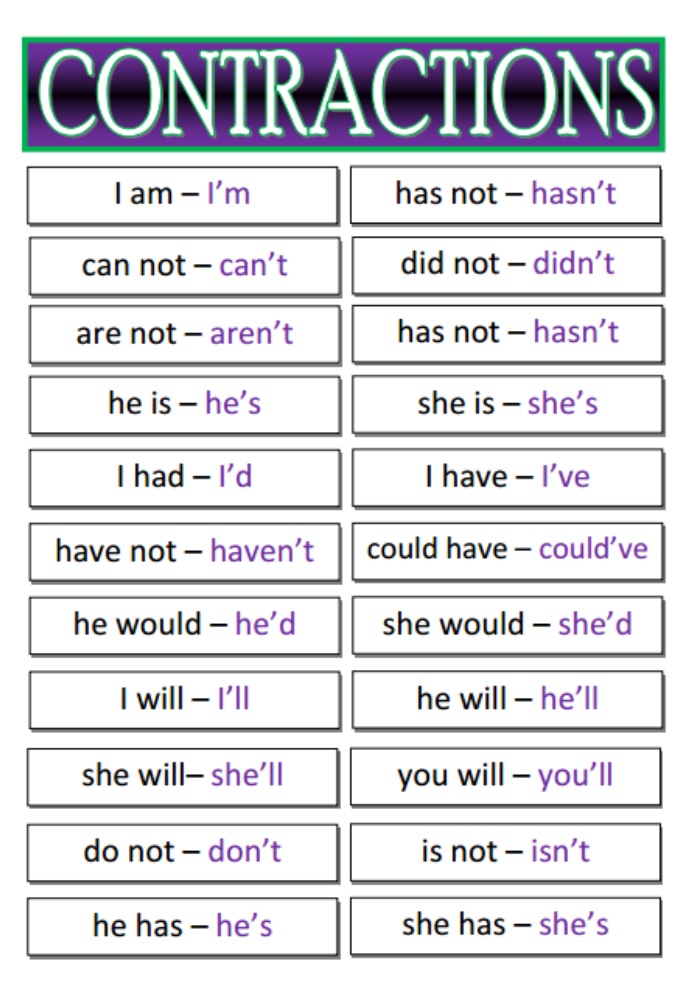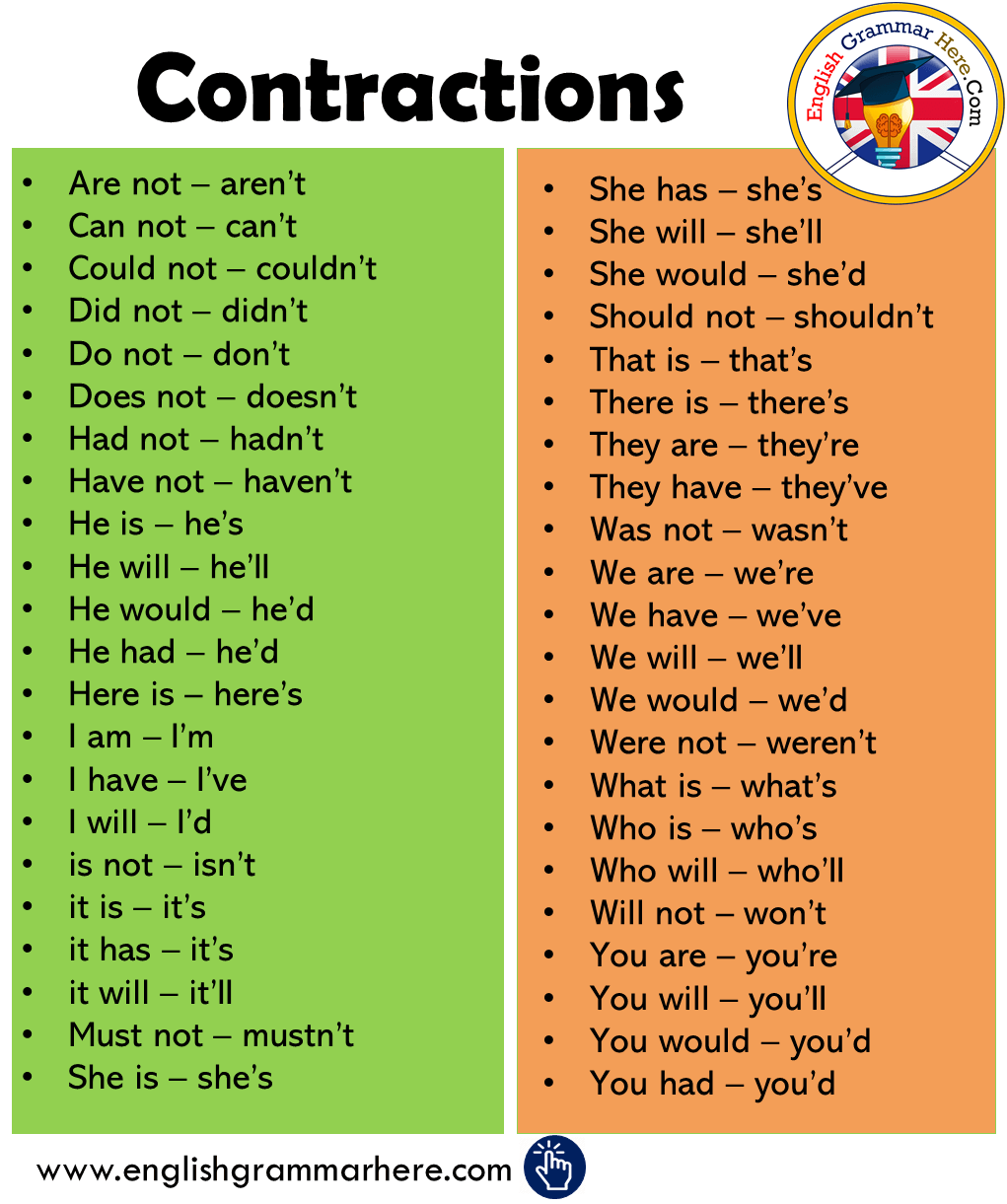Do Not Contracted Form - Don't is the contracted form of do not. Doesn't is the contracted (short) form of does not. Contractions are usually not appropriate in formal writing. We make contractions with auxiliary verbs, and also with be and have when they are not. “do not” is more formal, often found in. Contractions are forms like don’t and i’m. They represent the pronunciation of informal speech. Contraction mostly happens with a subject and a verb or when a helping verb or a modal verb is converted to its negative form. Please ___ play with your food. When deciding between “do not” and “don’t”, the main difference lies in formality and tone.
“do not” is more formal, often found in. Contractions are forms like don’t and i’m. Contraction mostly happens with a subject and a verb or when a helping verb or a modal verb is converted to its negative form. When deciding between “do not” and “don’t”, the main difference lies in formality and tone. Please ___ play with your food. They are common and correct in informal. Contractions are usually not appropriate in formal writing. They represent the pronunciation of informal speech. We make contractions with auxiliary verbs, and also with be and have when they are not. Doesn't is the contracted (short) form of does not.
Contraction mostly happens with a subject and a verb or when a helping verb or a modal verb is converted to its negative form. Contractions are usually not appropriate in formal writing. Don't is the contracted form of do not. “do not” is more formal, often found in. Please ___ play with your food. They are common and correct in informal. Doesn't is the contracted (short) form of does not. Contractions are forms like don’t and i’m. We make contractions with auxiliary verbs, and also with be and have when they are not. They represent the pronunciation of informal speech.
Contractions Chart in English Grammar Fun Teacher Files
Contraction mostly happens with a subject and a verb or when a helping verb or a modal verb is converted to its negative form. Please ___ play with your food. Contractions are forms like don’t and i’m. Doesn't is the contracted (short) form of does not. They represent the pronunciation of informal speech.
Pin on Contractions
We make contractions with auxiliary verbs, and also with be and have when they are not. They represent the pronunciation of informal speech. Contractions are usually not appropriate in formal writing. Contractions are forms like don’t and i’m. Don't is the contracted form of do not.
Contractions Chart in English Grammar Fun Teacher Files
Please ___ play with your food. Contractions are forms like don’t and i’m. We make contractions with auxiliary verbs, and also with be and have when they are not. They represent the pronunciation of informal speech. When deciding between “do not” and “don’t”, the main difference lies in formality and tone.
List of Contractions in English English Study Page
Doesn't is the contracted (short) form of does not. “do not” is more formal, often found in. We make contractions with auxiliary verbs, and also with be and have when they are not. They represent the pronunciation of informal speech. Contractions are forms like don’t and i’m.
+150 Contracted Forms of Verbs (Simple Guide) TPR Teaching
Please ___ play with your food. Don't is the contracted form of do not. They represent the pronunciation of informal speech. Contractions are usually not appropriate in formal writing. When deciding between “do not” and “don’t”, the main difference lies in formality and tone.
1StepEnglish The place to learn English for FREE!! Tips on CONTRACTIONS!
They are common and correct in informal. Doesn't is the contracted (short) form of does not. When deciding between “do not” and “don’t”, the main difference lies in formality and tone. Contraction mostly happens with a subject and a verb or when a helping verb or a modal verb is converted to its negative form. Contractions are usually not appropriate.
List of Contractions Contraction Words Used in Writing and Speaking
“do not” is more formal, often found in. When deciding between “do not” and “don’t”, the main difference lies in formality and tone. Contraction mostly happens with a subject and a verb or when a helping verb or a modal verb is converted to its negative form. Contractions are forms like don’t and i’m. Don't is the contracted form of.
Contractions List in English English Grammar Here
Doesn't is the contracted (short) form of does not. Please ___ play with your food. Contractions are forms like don’t and i’m. They represent the pronunciation of informal speech. Contraction mostly happens with a subject and a verb or when a helping verb or a modal verb is converted to its negative form.
List of Contractions in English English Study Page English study
Contractions are usually not appropriate in formal writing. They are common and correct in informal. We make contractions with auxiliary verbs, and also with be and have when they are not. Don't is the contracted form of do not. When deciding between “do not” and “don’t”, the main difference lies in formality and tone.
Detailed Contractions List in English English Grammar Here English
Doesn't is the contracted (short) form of does not. Contractions are forms like don’t and i’m. They represent the pronunciation of informal speech. They are common and correct in informal. We make contractions with auxiliary verbs, and also with be and have when they are not.
We Make Contractions With Auxiliary Verbs, And Also With Be And Have When They Are Not.
They represent the pronunciation of informal speech. Please ___ play with your food. Contractions are forms like don’t and i’m. Don't is the contracted form of do not.
When Deciding Between “Do Not” And “Don’t”, The Main Difference Lies In Formality And Tone.
Contraction mostly happens with a subject and a verb or when a helping verb or a modal verb is converted to its negative form. “do not” is more formal, often found in. Doesn't is the contracted (short) form of does not. Contractions are usually not appropriate in formal writing.









